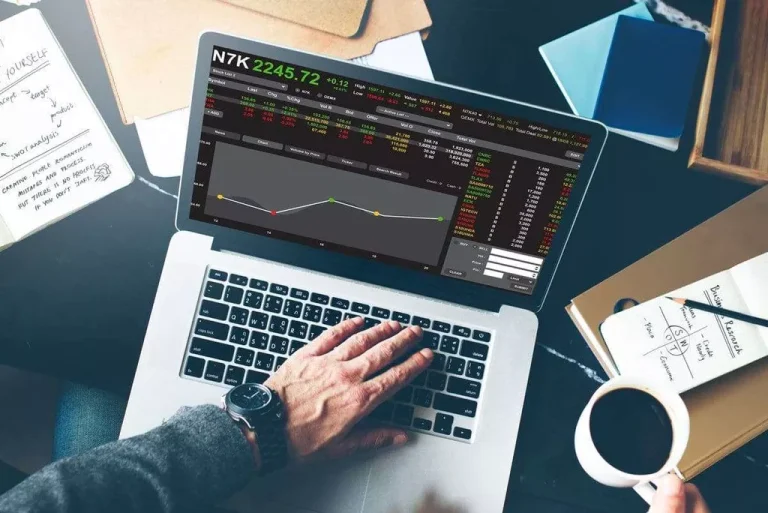The term, dealer, refers to the facilitation of trades on behalf of shoppers. In other words, a agency performs the role of a intermediary or middleman for shoppers looking to purchase and sell securities. In return, the company usually charges a fee associated to the transactions it carries out. Typically, brokerages generate income by charging varied fees and commissions on transactions they facilitate and services they supply. The on-line broker who provides free inventory trades receives fees for different providers, plus fees from the exchanges. Broker-dealers should establish an operational infrastructure, including buying and selling platforms, customer management techniques, and danger management instruments.
Think of it by method of your private finan- cial assertion (PFS), which reflects your total assets and liabilities. FINRA oversees broker-dealers, imposing compliance with rules that govern trading practices, sales, and operational standards. A broker-dealer might need a list of municipal bonds acquired from clients who wanted to sell in some unspecified time within the future up to now. The broker-dealer will mark up the bond and earn a selection between what they paid for it and what they charge the customer who finally purchases it.
In addition to federal registration, broker-dealers should adjust to What Is a Broker-Dealer state-specific rules. You should get hold of the necessary state-level registrations relying on the states where your agency will conduct business. This ensures your firm complies with native securities legal guidelines and rules. Broker-dealers operate in two main capacities, which allow them to serve different segments of the monetary markets.
Understanding A Broker-dealer

A broker-dealer is a monetary entity that’s engaged with trading securities on behalf of purchasers, but which may additionally commerce for itself. A broker-dealer is acting as a dealer or agent when it executes orders on behalf of its shoppers, and as a dealer or principal when it trades for its own account. A broker-dealer (B-D) is a financial entity that plays a dual role within the securities market by performing as both an agent (broker) and a principal (dealer). This unique position permits broker-dealers to execute trades on behalf of clients (brokering) and for their very own accounts (dealing). A broker will charge either a flat charge per transaction or will assess a charge primarily based on a proportion of gross sales.
A Hypothecation Settlement Permits A Broker-dealer To
They are liable for managing counterparty danger and making certain the integrity of the settlement process, contributing to the soundness and security of the overall monetary system. They cater to individual buyers, high-net-worth clients, and big-cap traders, providing personalized advice and extensive services. In trade for these companies, full-service broker-dealers cost greater charges and commissions.
Major sellers are obligated to participate in the auction of debt issued by the U.S. authorities. By bidding on Treasury bonds and other securities, these dealers facilitate trading by creating and sustaining liquid markets. They help in the clean functioning of domestic securities markets in addition to transactions with foreign patrons.
- When executing trade orders on behalf of a customer, the institution is claimed to be performing as a broker.
- As a broker, they facilitate buying and selling on behalf of purchasers, whereas as a supplier, they buy and promote securities for their very own accounts.
- We’ll also break down the foundations and rules companies must observe to maintain up compliance with the right authorities.
- On the other hand, if it’s offering you investment recommendation, it must be in a fiduciary capacity.
Securities bought from shoppers or other corporations in the capacity of vendor could additionally be sold to clients or other firms appearing once more in the capacity of dealer, or they may become part of the firm’s holdings. In the United States, broker-dealers are regulated by the SEC, the FINRA, and other regulatory our bodies. They should adjust to various guidelines and laws to guarantee market integrity and shield traders.
Full-service Vs Low Cost Brokers

After registration with the SEC, you must additionally become a member of the Financial Trade Regulatory Authority (FINRA), which helps ensure compliance with business standards and self-regulation. Broker-dealers are subject to stringent oversight by regulatory bodies like FINRA and the SEC to keep up the integrity of the financial markets. A market maker continuously offers buy and sell quotes to ensure market liquidity. Though many broker-dealers act as market makers, not all market makers are broker-dealers. The SEC regulates broker-dealers within the United States, making certain they comply with legal guidelines designed to guard investors and preserve fair and efficient markets. The primary focus of the Sequence 7 examination is on funding threat, tax implications, equity and fixed-income securities, mutual funds, choices, retirement plans, and working with buyers to supervise their property.
These firms, similar to Citadel Securities, focus on Decentralized finance market-making and liquidity provision. Low Cost broker-dealers, like Charles Schwab or Constancy, focus totally on executing trades at lower costs. They supply limited advisory providers and are often used by self-directed buyers. When investing, it is important to grasp that a broker executes orders on behalf of shoppers and may be both a full-service broker or a reduction broker that only makes trades.
Broker-dealers usually act as market makers, offering liquidity to markets by continually quoting buy and sell costs for securities. “Broker” and “vendor” are U.S. regulatory phrases and could be lower than intuitive to many purchasers. To take part within the sometimes-complex financial companies world, traders typically engage the companies of a dealer, dealer, or broker-dealer in some form https://www.xcritical.in/. Registered funding advisors, in contrast, have always been bound by the fiduciary standard.

